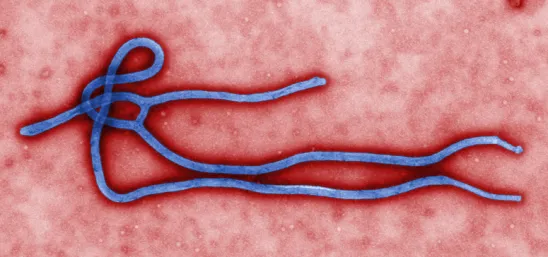As the Ebola virus has spread to a second city in the United States, and with the potential for additional cities to be affected, many businesses are faced with the difficult task of determining how to properly handle their workforce in the face of such an epidemic. While there are many concerns employers may have with respect to Ebola and their workforce, this article will focus on six key considerations for employers when managing this, or any other, health epidemic.
1. Can an employer restrict employee travel?
While an employer may be tempted to place a travel restriction on employees in order to prevent infection in the workplace, an employer cannot simply place a blanket restriction on employee travel to specific regions of the world. Nevertheless, employers can generally mandate that employees report on the places they traveled upon their arrival back to the workplace. At the time such travel is reported, the employer will then be able to assess whether any potential exposure exists and whether the potential exposure warrants a restriction on an employee’s return to work. Such restrictions may include permitting the employee to work from home until the time for infection has passed or compelling the employee to seek medical approval before returning to the workplace. While employers can generally inquire as to the travels of their employees, employers should be mindful that employees could potentially pursue discrimination claims if they are barred from the workplace because of their travels.
2. Can employers prohibit certain employees from coming to work due to Ebola concerns?
Employers cannot outright prohibit an employee from coming to work just because that person is West African, or may have recently been to an African country, as such outright prohibition would run afoul of discrimination laws such as Title VII of the Civil Rights Act. However, as mentioned above, employers are permitted to inquire about the countries visited by an employee and can ask the employee about any potential exposure they may have had to Ebola or other viruses during their travels. If the employer determines, based on the employee’s answers, that the employee may pose a health threat to other employees, the employer can request that the employee stay home/work from home for a 21-day period to ensure that no Ebola symptoms are present. While the employer may have to pay the employee for this 21-day period, such a course of action would reduce the risk of any unnecessary exposure in the office.
3. Can employees refuse to come to work due to Ebola fear?
In cities where Ebola has already spread, it is possible that some employees may request to be excused from work due to a fear of catching the Ebola virus. While employers do have a duty to provide a safe workplace for employees, it is unlikely that a typical office setting presents a high probability of exposure to the virus. Given this, an employer would be justified in compelling its employees to attend work (particularly where there is no indication that any employees have been exposed to the Ebola virus). If an employee were to remain home from work due to a fear of Ebola, the employer would be under no obligation to compensate the employee for that time (provided the employee is not using accrued vacation or sick time). Finally, it is worth noting that if an employee refuses to come to work due to a fear of Ebola, terminating that employee could carry some risk. In particular, the Occupational Safety and Health Administration’s anti-retaliation provisions pronounce that an employer cannot retaliate against an employee who refuses to work if the employee reasonably believes they would be in imminent danger.
4. Can employees receive workers’ compensation or utilize Family Medical Leave Act leave as a result of Ebola concerns?
Generally, in order for an employee to receive workers’ compensation, the disease must be occupational and must arise out of and in the course of employment. In addition, the disease must generally be caused by conditions that are peculiar to the occupation. Given these standards, Ebola will likely be considered occupational only if the employee can demonstrate that the probability of contracting Ebola is heightened due to the peculiarity of the job. As such, employees in the healthcare field may be able to receive workers’ compensation if they contract Ebola while at work. However, aside from health care employees, it is unlikely that many other occupations will meet the requirements for the receipt of workers’ compensation due to contraction of the Ebola virus.
With respect to FMLA leave, an employee with Ebola, or one who has a family member battling Ebola, will certainly be permitted to take FMLA leave as Ebola would qualify as a serious health condition. On the other hand, employees who are simply afraid of contracting Ebola in the office, however, would not qualify for FMLA leave as fear of contracting Ebola is not a serious health condition.
5. Are there any specific concerns with respect to the Americans with Disabilities Act (“ADA”)?
The ADA does not allow employers to: (i) discriminate against individuals who have a disability, including individuals who are regarded as having a disability; and (ii) conduct disability-related inquiries of employees or require employees to undergo medical examinations unless it is job-related and consistent with business necessity. Employers are also prohibited from releasing confidential medical information about employees. However, the ADA does permit employers to take action when an employee presents a “direct threat” of harm, which is defined as a significant risk of substantial harm to an employee or others that cannot be eliminated or reduced by a reasonable accommodation.
As an example, since Ebola, as a qualifying infectious disease, is likely a covered disability, if an employer is aware that an employee may have had contact with someone who has contracted Ebola (i.e., the employee just returned from an African country and discloses that they were working with Ebola patients), the employer would be justified in asking that employee to obtain a medical examination before returning to work, as that employee may be deemed a “direct threat.” However, absent such evidence of a direct threat, employers should refrain from implementing any of their own health screening procedures (i.e., taking the temperature of employees) as such course of action could run afoul of the ADA’s prohibition on employers conducting medical examinations.
Likewise, employers also must be wary about the accidental disclosure of employee health-related information which would run afoul of the ADA and/or the Health Insurance Portability and Accountability Act of 1996 (HIPAA). For instance, while posting a general advisory regarding Ebola or another infectious disease, employers cannot share information regarding a specific employee’s health or medical condition, as such posting would violate the ADA and HIPAA.
Finally, to further assist employers, the EEOC has issued guidance entitled “Pandemic Preparedness in the Workplace and the Americans with Disabilities Act” which details the appropriate actions employers may take when dealing with the potential of employees spreading infectious disease. See http://www.eeoc.gov/facts/pandemic_flu.html.
6. Should employers update their personnel policies?
While employers are not required to update their policies, doing so would be a good course of action. For instance, employers may want to implement a policy adopting the Center for Disease Control’s (“CDC”) protocol for employees returning to work after travel in one of the impacted countries. Recently, the CDC announced that public health authorities will begin post-arrival monitoring of travelers whose travel originated in Western Africa for 21 days from the date of their departure from that country. Given this protocol, employers may wish to implement a similar 21-day period where employees who traveled to an Ebola-affected region, and may have had exposure to the virus, will work from home or not otherwise come to work for the first 21-days after returning. As mentioned above, if such a policy is implemented, employers will likely need to compensate their employees for this time out of the office.
Likewise, employers may want to amend their emergency response plans to deal with instances where the workplace is faced with a health epidemic such as Ebola. Such response plans may include information regarding how employees can retrieve up-to-date information regarding a potential outbreak, the procedure for containing an outbreak if one occurs at the workplace, and which medical authorities to contact in the case of an outbreak.
Conclusion
While health epidemics such as Ebola are certainly a terrifying prospect for many employees, by following the considerations above, employers may be able to reduce the anxiety of their employees and, at the same time, maintain a productive and safe workplace.



 />i
/>i

